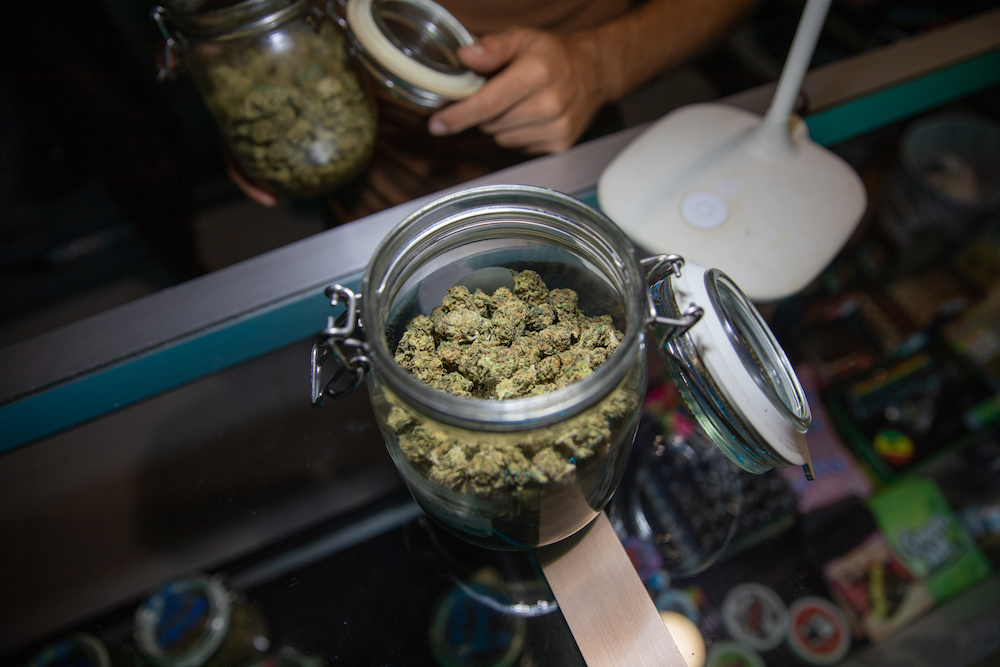Alright, folks, let’s dive into a topic that’s buzzing more than ever – cannabis products and how they stack up against Delta-8 and Delta-9. If you’re scratching your head wondering what all these terms mean, don’t worry. We’re going to break it down in a way that’s as easy as sipping on a refreshing iced tea on a hot day.
The Basics: What Are We Talking About?
Before we jump into the nitty-gritty, let’s get a quick rundown on what these terms mean.
- Cannabis: This is the plant itself, which has been used for thousands of years for its medicinal and recreational properties. It contains hundreds of compounds, but the two most famous are THC (tetrahydrocannabinol) and CBD (cannabidiol).
- Delta-9 THC: This is the classic THC, the one that gets you “high.” It’s the main psychoactive component of cannabis.
- Delta-8 THC: A close cousin to Delta-9, Delta-8 also has psychoactive effects, but it’s typically described as milder and less intense. It’s often touted as the “diet weed.”
Now, let’s explore why cannabis products might just be your best bet.
1. Natural Goodness
Cannabis products, especially when sourced from reputable growers, are as natural as it gets. These products undergo minimal processing, ensuring that you’re getting the plant’s full spectrum of benefits. This means not just THC or CBD, but also a host of other cannabinoids and terpenes that work together to enhance the effects. It’s called the “entourage effect,” and it’s like a symphony where every instrument plays a part.
On the other hand, Delta-8 products often come from synthetic processes. Since Delta-8 is present in very small amounts in the cannabis plant, it usually needs to be converted from CBD through a chemical process. This can raise questions about the purity and safety of the final product.
2. Safety First
When it comes to safety, cannabis products have a long history and a wealth of research behind them. We know a lot about their effects, potential benefits, and risks. Quality cannabis products from legal dispensaries are tested for pesticides, heavy metals, and other contaminants, ensuring you’re getting something safe.
Delta-8, being relatively new on the market, lacks extensive research. Moreover, because it’s often made synthetically, there’s a higher risk of impurities and contaminants. The market for Delta-8 isn’t as regulated, which means you could end up with a product that’s not as safe as you think.
3. Consistency and Transparency
With cannabis products, especially from established brands, what you see is what you get. Labels are clear about the contents, the THC and CBD levels, and any other ingredients. There’s a level of transparency that gives consumers confidence in what they’re buying.
Delta-8 products, however, can be a bit of a wild card. The lack of regulation means labels might not always tell the whole story. You might think you’re getting a mild experience and end up with something way stronger or, worse, something harmful.
4. The Full Experience
Cannabis isn’t just about getting high. It’s about the experience. The various strains of cannabis offer different effects, flavors, and aromas, thanks to the diverse terpene profiles. Whether you’re looking to relax, get creative, or alleviate pain, there’s a strain for you.
Delta-8, while providing some psychoactive effects, doesn’t offer the same rich experience. It’s like comparing a full-course meal to a single dish. Sure, the dish might be tasty, but it’s not the same as the whole meal.
5. Medical Benefits
Cannabis has been studied extensively for its medical benefits. From pain relief to reducing anxiety and helping with sleep, there’s a lot of evidence supporting its use. Medical cannabis programs are available in many states, allowing patients to get the help they need legally and safely.
Delta-8 is still in its infancy in terms of research. While some people report benefits, we just don’t have the same level of understanding or evidence to back it up. When it comes to your health, it’s better to go with something that’s well-studied and understood.
6. Legal Landscape
The legal status of cannabis is evolving, with more states and countries moving towards legalization. This shift is bringing better regulation, more research, and higher standards for products. Legal cannabis products are produced under strict guidelines, ensuring quality and safety.
Delta-8 exists in a gray area. It’s often marketed as a legal alternative to Delta-9 THC, but its legal status is murky and varies by location. This uncertainty can lead to issues with product consistency and legality.
7. The Community Connection
There’s something to be said about the cannabis community. It’s a group of people passionate about the plant, its benefits, and its potential. This community fosters a culture of education, support, and advocacy. Whether you’re a seasoned user or a newbie, there’s a wealth of knowledge and resources available to help you make informed choices.
Delta-8, being newer and less established, doesn’t have the same community support. It’s more of a product than a culture, and that can make a big difference in how you experience and understand its use.
At the end of the day, choosing between cannabis products and Delta-8 comes down to what you’re looking for and what you’re comfortable with. If you want something natural, well-researched, and with a rich history and community, cannabis products are the way to go. They offer a full spectrum of benefits, from recreational enjoyment to medical relief, all backed by science and regulation.
Delta-8 might seem appealing, especially if you’re looking for a milder high or trying to navigate legal restrictions. However, the lack of research, regulation, and potential for impurities makes it a riskier choice.
So, next time you’re faced with the decision, remember: Cannabis products bring the whole package – safety, consistency, community, and a full range of benefits. It’s not just about getting high; it’s about enhancing your well-being and enjoying a richer, safer experience. Cheers to making informed choices and enjoying the green in all its natural glory!

